2023
-
Christian Wiman, “The Preacher Addresses the Seminarians” from Once in the West (Farrar Straus and Giroux, 2014). ↩︎
- Baker, S. (1985). The practical stylist. Harper and Row. p. 2-3). 1
- Choose your own race and finish it
- Only sinners left down here
- Why I’m writing slowly
- You can get a lot done by writing slowly
- My range is me
- The mastery of knowledge is an illusion
-
Quoted in Cruz, Robson Nascimento da Cruz, and Junio Rezende. “A escrita de notas como artesanato intelectual: Niklas Luhmann e a escrita acadêmica como processo.” Pro-Posições 34 (2023): e20210123. English PDF. ↩︎
-
In the case of reading magazine submissions, the threat of AI imitating humans is a little overblown. To maintain a manageable slush pile you simply need to introduce some little task that only a human could perform. You could accept only manuscripts that were sent in the mail, for example. This immediately kills the zero-cost proposition of submitting AI-written stories. And when that gets gamed, you could decide to read only those submissions with a hand-written address on the envelope. In other words, if you only want to accept human labour, you just need to request human labour. Re-introduce any human work at all, and the cost benefits of automation are curtailed or even eliminated. ↩︎
-
If you’re using crumbs to reach the molten heart of creation, they’ll pretty soon be toast. ↩︎
-
personal in that it shows Luhmann didn’t imagine a sophisticated non-literate culture, of which, nevertheless, there are many. I take it he was writing mainly about himself. ↩︎
- the friendship roles I’m good at,
- the roles I’m bad at, and
- the roles I’d like to focus more on.
- The Builder
- The Champion
- The Collaborator
- The Companion
- The Connector
- The Energizer
- The Mind Opener
- The Navigator
-
Well, Tom Rath’s 2006 book, Vital Friends. ↩︎
Ross Ashby's other card index
During the Twentieth Century many thinkers used index cards to help them both think and write.
British cyberneticist Ross Ashby kept his notes in 25 journals (a total of 7,189 pages) for which he devised an extensive card index of more than 1,600 cards.
At first it looks as though Ashby used these notebooks to aid the development of his thought, and the card index merely catalogued the contents. But it turns out he used his card index not only to catalogue but also to develop the ideas for a book he was writing.
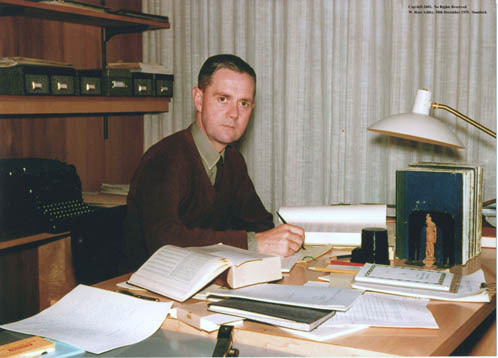
Manton Reece has updated his excellent and inspiring book on Indie Microblogging.
This 1660 description of the Royal Society well describes micro.blog methinks:
💬 “Their first purpose was no more, then onely the satisfaction of breathing a freer air, and of conversing in quiet one with another, without being ingag’d in the passions, and madness of that dismal Age”. The fediverse is an opportunity learned societies can’t ignore
The value of feedback depends on how you use it

I had a school friend who worked on Saturdays at the local op shop. Whenever an item of clothing she liked came in, she’d put it on view somewhere prominent near the front of the store. If it stayed there unsold for three weeks, then - and only then - she’d consider buying it herself. The result was a fairly unique style - bargain clothing that people who shop in op shops wouldn’t be seen dead in.
Obviously it’s important to pay attention to feedback from other people, but what you do with what they tell you can make all the difference.
Kevin Kelly has a great story about how he learned to avoid being the best in order to be the only. Figuring life is short, he decided to focus on the things only he can do. But what exactly is that, and how would he know?
Here’s how he finds out. When he has a great idea he doesn’t keep it to himself like most people would. Instead he tells people all about it. He talks a lot about what he’d like to do, “hoping that someone else would steal the idea”. If no one takes him up on it, clearly it’s something only he is prepared to act on.
Do the things only you can do, he says. If you do what others can do, even if you’re highly skilled at it, eventually you’ll be overtaken. But if you do what no one else will, it’s not a competition. That’s what he means by “Don’t be the best, be the only”.
This isn’t just theory. When Kelly was the editor of Wired magazine about half the articles were submissions and half were commissioned. Kelly would have a whole pile of article ideas that he’d send out to freelancers to write. But he was surprised to find that the pile of his story ideas kept growing because there were some that no one would write, even though he was offering them payment. Some ideas just kept getting turned down. These were great ideas, he thought, but there was no evidence. In fact, it was clear from the growing pile that he literally couldn’t pay people to write them.
Eventually he decided to start writing them himself, and these turned out to be some of his most successful articles.
“If at all possible, try and work on things that no one has a name for what you’re doing”. - Kevin Kelly, Longform podcast, Episode 532 (this comes near the end of the interview).
This advice is perhaps at odds with that of Adam Grant, who says “Every time you create something, people react and then you discover what people care about”.
“If you only focus on your own interest, you tend to develop novel ideas, but not necessarily useful ideas. And so for me, the audience is a filter. … I might have 30 ideas for a book. Let me hone in on the four or five that also might be relevant to other people. The goal there is to make a contribution.” - Adam Grant, Longform podcast, episode 557.
These might look like two different pieces of advice, and maybe they are - either to write what no one else is willing to (Kelly), or to write what others want to read (Grant). Depending on how you understand what people are telling you, the outcomes will surely be very different. In both cases, though, the key is to make the most of the feedback you’re given.
What that looks like, you’ll have to decide for yourself.
—-
Now read:
Choose your own race and finish it
The thing about advice is that people do what they want with it
Raising babies? Here's how to survive - I mean, enjoy it
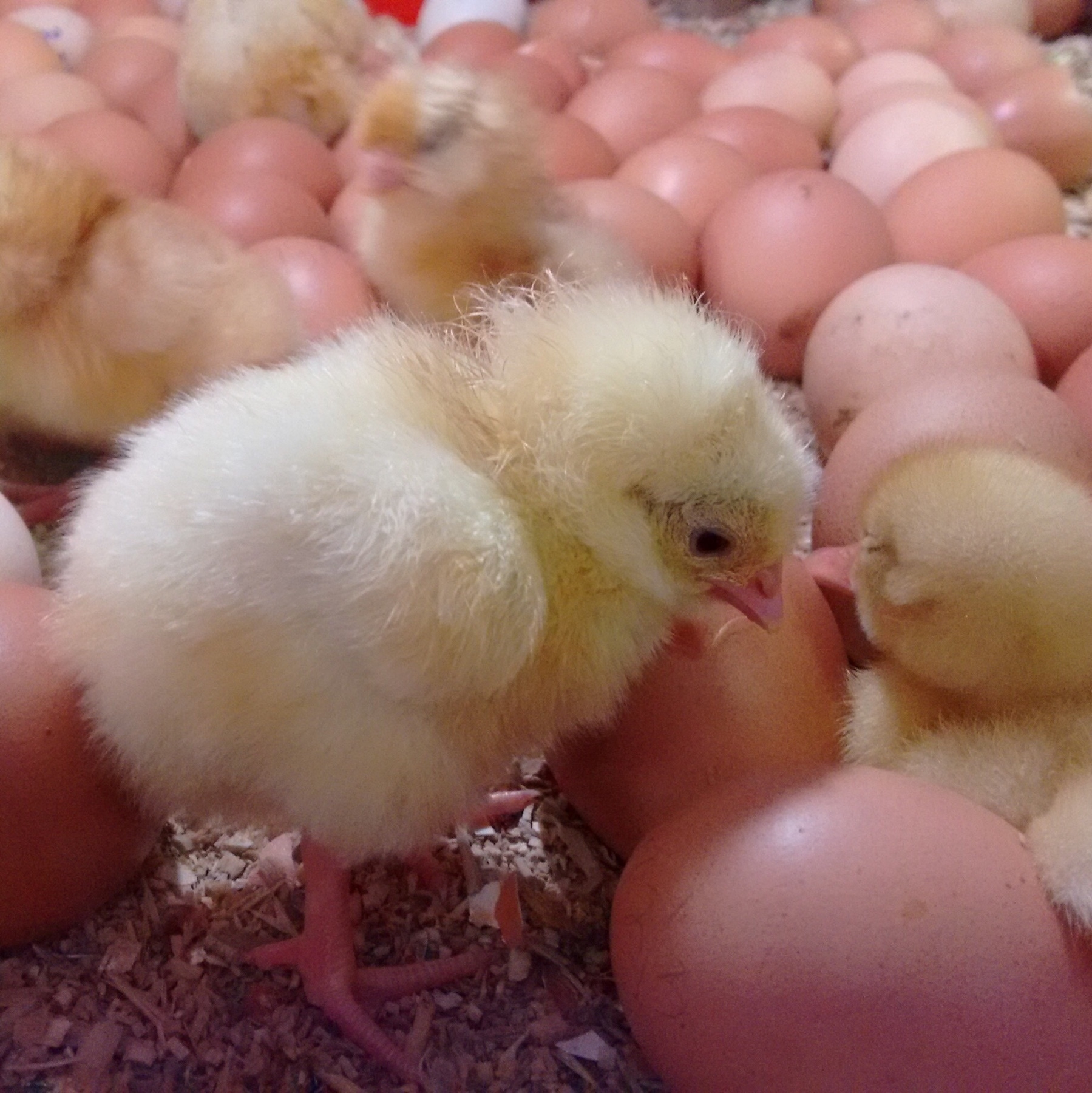
Ben Werdmuller may not be alone in finding it quite a challenge raising a baby while also having a life. Here are some thoughts from my own experience of parenting very young children.
tldr; I think I just about got away with it.
It’s just a phase
First, you will get through it. Though the feeling of being (over-) stretched and (completely) grounded may seem permanent, it really is just a short phase of your life. Before you know it, it will be over and you’ll miss it. So the important thing is to lean into the constraints. This is now, and even though it may seem like an eternity it won’t be like this for very long. Children grow very fast and you miss every stage as they outgrow it.
Plan on returning to the things you abandon
Second, because it’s just a phase, you can afford to let go of a few things - even things that seem indispensable. A bit like how at the end of the day you go to sleep thinking “that will just have to wait till tomorrow” - some things will have to wait till the kid grows up a bit and is a bit more independent. I noticed that even as pre-school arrived, my kids needed much less of me and much more of their peers. Then, at the age of about 5, they had a less independent phase. It goes in waves but in general they need your time less intensely the older they get. I did a graduate diploma in psychology when they were teenagers and they didn’t even notice. Those things you really need to do this year? Well, you prioritised kids (theory) so now you need to prioritise your time with kids (practice). Create a three or five year plan which includes ramping up the things you do without the kid, so you know those days really are coming, with a little patience.
Find something nurturing in every little thing
Third, “If you have a young family and you are managing to spend time on creative work…” Yes, I’m getting to that! Even though you’re now travelling at the speed of a baby, you can still experience something for yourself in almost every activity. I remember visiting Seattle with a toddler and a baby. We saw every children’s playground and not much else really. But hey! I visited Seattle! There was a fish ladder too, as I recall. The Bumbershoot music festival? There was a ride where you go round and round slowly in a large toy car. Oh, and space noodles at the Space Needle. Most importantly though, I did it with my tiny children. Thomas Merton said it more eloquently:
“if we have the courage to let almost everything else go, we will probably be able to retain the one thing necessary for us — whatever it may be. If we are too eager to have everything, we will almost certainly miss even the one thing we need. Happiness consists in finding out precisely what the “one thing necessary” may be, in our lives, and in gladly relinquishing all the rest.” - Thomas Merton,No Man Is An Island.
Find the others
Fourth, find some allies and make a community of peers. You can’t actually do it all on your own. That trip to Seattle? We were on a journey across the world, emigrating to Australia, to live in a town where I knew precisely no one. Very quickly we set up a baby-sitting circle, then on the back of that a local economic trading system (LETS) for the same families, using washers as credits, and I joined the community garden toddler group, and before long we had a group of adults to do baby activities with together, so the baby stuff wasn’t just baby stuff - it was social activity for the adults too. By sharing the load, both my partner and I managed to get a lot of writing done in the time we had very young kids. Also, some of those people we met through mutual desperation weren’t just temporary allies. They became our close friends. Yes, raising children slowed us down, and not all of our aspirations were fulfilled (putting it mildly), but both our kids are young adults now and though this is fantastic, I miss them as babies terribly. Would I go back there? Yes, in a flash.
To sleep, perchance to dream
Fifth, sleep and tiredness? Absolutely. It’s actual torture. Easy to say and hard to do, but sleep when the baby sleeps. Far from perfect, and usually far from doable, but wherever possible, get those micro-sleeps in. Compared with chinstrap penguin parents, who sleep for 4 seconds at a time throughout the day, human parents have it easy. They might get at least ten seconds at a time. Well, that’s obviously no help at all, but to refer back to point one: you will get through it. And I found meditation really helped, though YMMV.
Baby advice is absolutely the worst advice
Well no one ever benefited from offering unsolicited baby-raising advice. I mean, either it sounds unbearably smug, as in “just be a good parent and it will work out fine”, or completely unhelpful, as in “have you tried just turning the light off?”, or “it’s just a phase” (sorry about that).
Now you’ve seen my poor attempt at being the exception to the rule, what are your top tips for annoying your friends who have young babies?
Conducting myself properly
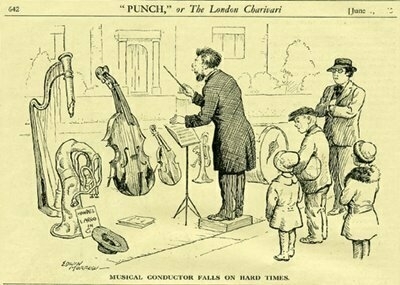
They made me the student leader of the school orchestra. One day the music teacher was sick and he asked me to conduct. I had no idea what to do, except what I’d seen him doing. So I waved my arms around.
Today I’m fragmented, overwhelmed by what there is still to complete, and also by all there is to start. Somewhere in the middle, there I am, lost between starting and finishing. Flailing.
Yet even no method is still a method. Says the poet Christian Wiman1:
💬 “The truth is our only savior is failure.”
And look at those stats! This is my 200th post here this year. Writing slowly? No, not me.
The real story of Napoleon?
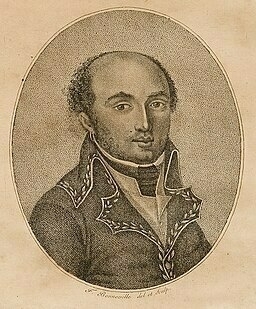
If you’re thinking of viewing Ridley Scott’s movie version of Napoleon 🍿, or if you’ve already seen it, I’d recommend also reading The Black Count: Glory, Revolution, Betrayal, and the Real Count of Monte Cristo by Tom Reiss. 📚
This Pulitzer prizewinning biography puts Napoleon’s life and times in historical context and it’s an amazing story. The ‘black count’ of the title was Alexandre Dumas, father of the famous author of The Count of Monte Cristo and The Three Musketeers. He rose from obscurity to became Napoleon’s commander of cavalry during the Egyptian campaign.
But quite unlike Napoleon, he seems to have been motivated by something rather more than personal glory. He actually believed in the ideals of the Revolution, not least the implementation of Liberté.
As an aside, the book provides a huge number of fascinating factoids, such as why dolomite (the mineral as well as the mountain range) is named dolomite.
Why I'm writing faster

Why do you write?
Everyone has their reasons but I write so I can think:
Writing is not simply a way of saying what someone knows but one of the most effective ways to unveil what there is to say. As Baker (1985) suggests, “in fact, writing creates a thought and the capacity to think: with writing you discover thoughts that you barely knew you had”
But what slows you down?
I’ve been running this site, and writing slowly since 25 January 2014. For the first nine years it really lived up to its name, because I posted very rarely. The reason, I reasoned, was that the WordPress front end and I just didn’t get along. It was a room of my own, sure, but it wasn’t comfortable. It just didn’t feel like a room I wanted to spend time in.
The author Virginia Woolf wrote about how women need a room of one’s own to write in. But that still left the rest of the world to the men. Jane Austin wrote at the kitchen table of a busy household, and it wasn’t ideal. Capitalism gives us hot-desking - not even a table to call your own. So your virtual environment really matters. A UI of your own? Not likely.
And what speeds you up?
Eventually, after complaining about WordPress for five years, and having tentatively connected the site to micro.blog (not before eight months of procrastination) while still hosting it on WordPress, I finally switched completely to micro.blog as the host. This meant the front-end editor also changed completely. Now I just had a plain box to write in, with a couple of options for simple categories. Often though, I just wrote in a text editor and copy-pasted as necessary. The outcome was stark. This shift resulted in a dramatic increase in writing frequency, which given the name of the site is a little embarrassing. On 27 January 2023 I wrote:
“Don’t worry, whatever happens I’ll still be writing slowly.
Between 2014 and 2022 I had only written 26 posts. But following the big changeover I wrote 194 posts and counting, in a single year. As a result there’s now about 33,000 words on this site. And here are the latest statistics.
So what’s the right speed for you?
I admit it then: I’ve sped up. Yet I still maintain that writing slowly is the way to go. A little every day or two adds up to a whole heap. Never mind the quality. Just look at the size! Maybe I’ll change the name of this site to Writing Bigly.
“Don’t worry, whatever happens I’ll still be writing bigly.”
Well clearly that won’t be happening. Meanwhile, though, I wish you a very big writing year ahead. Let me know in the comments what you’ve achieved, and what you have planned. Exciting!
More on writing and blogging
Publish first, write later
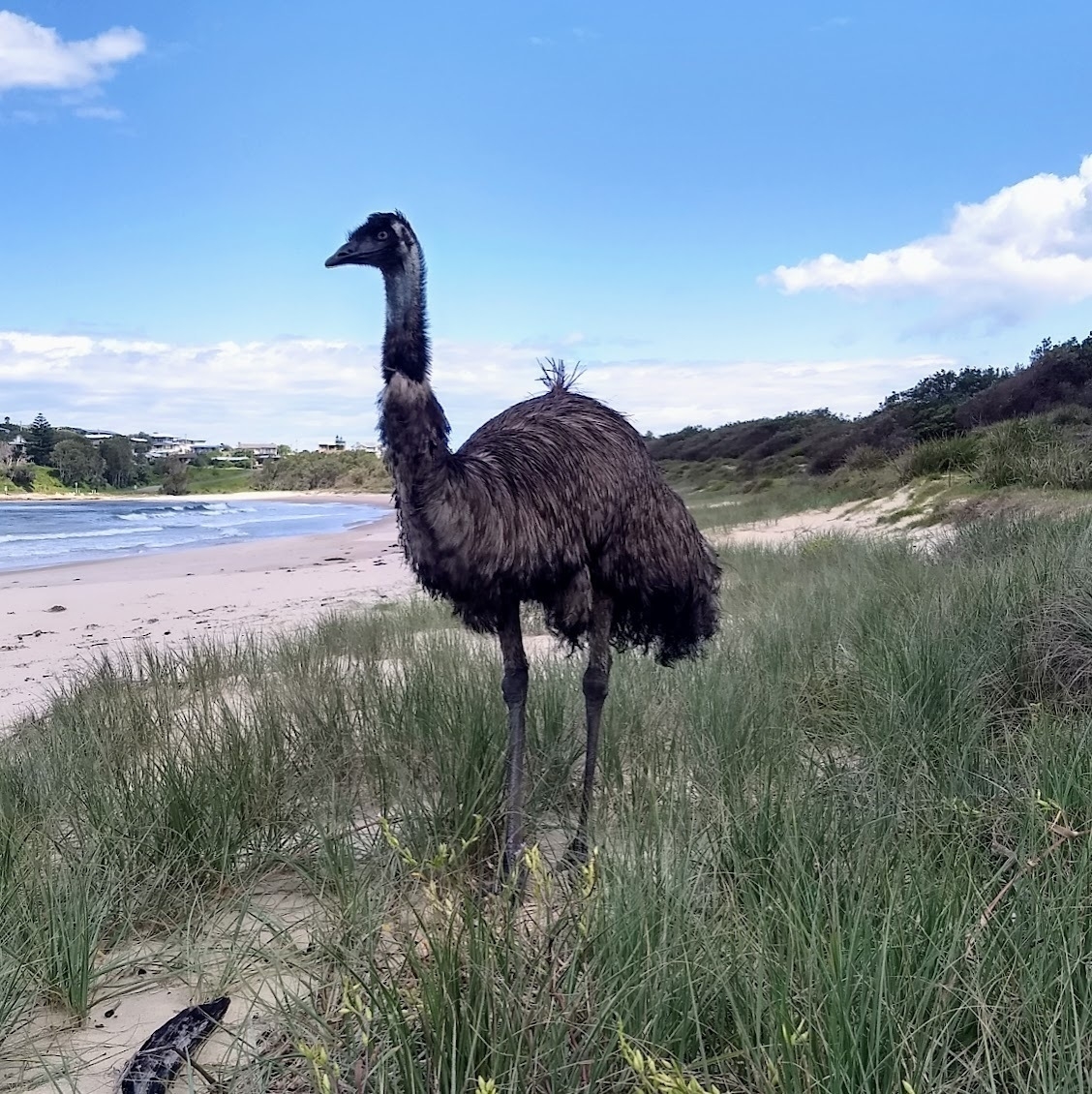
“Literature is perhaps nothing more complicated and glorious than the act of writing and publishing, and publishing again and again."
- Marcelo Ballvé, on the curious writing career of César Aira
César Aira on the constant flight forward
Argentinian author César Aira’s writing process is more about action than reflection. In a moment I’m going to share with you an extract from The Literary Alchemy of César Aira, an essay by Marcelo Ballvé, originally published in The Quarterly Conversation in 2008.
But before coming to the extract, I’ll just comment on David Kurnick’s claim in Public Books that Aira’s work is primarily about process:
“It is not in the least original to begin talking about César Aira’s work by recounting the technique that produces it. But it can’t be helped: Aira has made a discussion of his practice obligatory. To read him is less to evaluate a freestanding book, or a series of them, than to encounter one of the most extraordinary ongoing projects in contemporary literature.”
True, I’m not being at all original here, just cutting and pasting. Still…

Aira’s own Aleph
It’s as though through his writing Aira has found the basement in Buenos Aires that contains the entire universe in condensed form, the basement that features in Borges’s 1945 story “The Aleph”.
And having found that fabled basement, it’s as though Aira has taken on the persona of Carlos Argentino Daneri, the character in Borges' story whose life’s obsessive goal is to write a poetic epic describing each and every location on Earth in perfect detail.
But instead of taking the find seriously, Aira parodies it. Everything is here: and what do you know? None of it makes sense! Or, perhaps instead of parodying “The Aleph”, he takes it completely seriously: Why not write about it, about all of it? What then? In an interview in 2017 for the New Yorker, Aira said: “I am thinking now that maybe . . . maybe all my work is a footnote to Borges.”
Of course I’m not just cutting and pasting. I’m writing too. Aira also inspires my own writing process. His example inspires me to choose my own race - and finish it.
One of my role models is the Argentinian author César Aira. He’s written a very large number of novels and novellas (at least 80 - around two to five per year since 1993), published by a variety of presses. That’s a lot of races and a lot of finish lines crossed.
Now here’s Marcelo Ballvé on Aira’s unique writing process.
According to Aira, he never edits his own work, nor does he plan ahead of time how his novels will end, or even what twists and turns they will take in the next writing session. He is loyal to his idea that making art is above all a question of procedure. The artist’s role, Aira says, is to invent procedures (experiments) by which art can be made. Whether he executes these or not is secondary; Aira’s business is the plan, not necessarily the result. Why is procedure all-important? Because it is relevant beyond the individual creator. Anyone can use it.
Aira’s procedure, which he has elucidated in essays and interviews, is what he calls el continuo, or la huida hacia adelante. These concepts might be translated into English as “the continuum,” and a “constant flight forward.” Editing is an abhorrent idea in the context of Aira’s continuum. To edit oneself would be to retrace one’s steps, go backwards, when the idea is to always move forward. To judge yesterday’s writing session, to censor a lapse into the absurd or the irrational, to revive a character your work-in-progress sent tumbling over a cliff—all of these actions go against Aira’s procedure. Instead, the system prioritizes an ethic of creative self-affirmation and, I would say, optimism. To labor to justify previous work with more strange creations that in turn establish the need for ever more artistic high-wire acts in the future—this is the continuum, the high-wire act the artist must perform when he refuses to submit to any rule that is not his autonomously chosen procedure. It is an act performed with deep abysses yawning to each side of him—conformity, market pressures, conventionality, self-repression of all kinds . . . In other words, Aira’s literary career, embodied in each of his 63 novels, is a reckless pursuit of artistic freedom.
Aira says that when he sits down to write his daily page or two, he writes pretty much whatever comes into his head, with no strictures except that of continuing the previous day’s work. (The spontaneous feel of his stories would seem to back up this claim, but I’ve always asked, can anyone write as well as Aira does while simply letting the pen ramble?)
True, his books are very short. Aira says in interviews that he’s often tried to make his novels longer, but they seem to come to a natural rest at around the 100-page mark. Technically, much of what Aira has written would have to be classified in the novella category, but it’s hard to classify Aira’s work within any genre, be it story, novel, or novella. In my mind, Aira’s creations are something different altogether. They are stories, pure and simple, which Aira has managed to ennoble by seeing them into publication in the form of a single book. What he has done is put stories into circulation as objects, which is a defiant feat when seen in the context of a global literary market that demands hefty, sprawling, “big” novels.
The key to Aira’s curious career, I think, is to be found in his conception of literature as something with more affinities to the realm of action than the inner world of reflection. Literature is perhaps nothing more complicated and glorious than the act of writing and publishing, and publishing again and again. Editing is dispensable, so is the search for the “right” publisher. (Aira publishes seemingly with whomever shows any interest in his manuscripts; at least a dozen publishers, most of them small independents, in Argentina alone.) The idea seems to be: publish first and ask questions later…In fact Aira’s mentor, the deceased Argentine poet and novelist Osvaldo Lamborghini had a saying: “Publish first, write later.”
Extracted from The Literary Alchemy of César Aira, by Marcelo Ballvé. The Quarterly Conversation
César Aira’s main publisher in English is New Directions. They’ve published about 21 of Aira’s works in translation, while And Other Stories has published another half-dozen.
Now read: Choose your own race
Whether I’m a tortoise or a hare, or a person who resists anthropomorphizing animals just for the sake of a cheap fable, or even a person who’s uncomfortable with competition metaphors, all the same I’m running my own race. ✍️
Having posted Choose your own race and finish it there’s no excuse now not to boost this:
“What kind of runner can run as fast as they possibly can from the very start of a race?"
Choose your own race and finish it
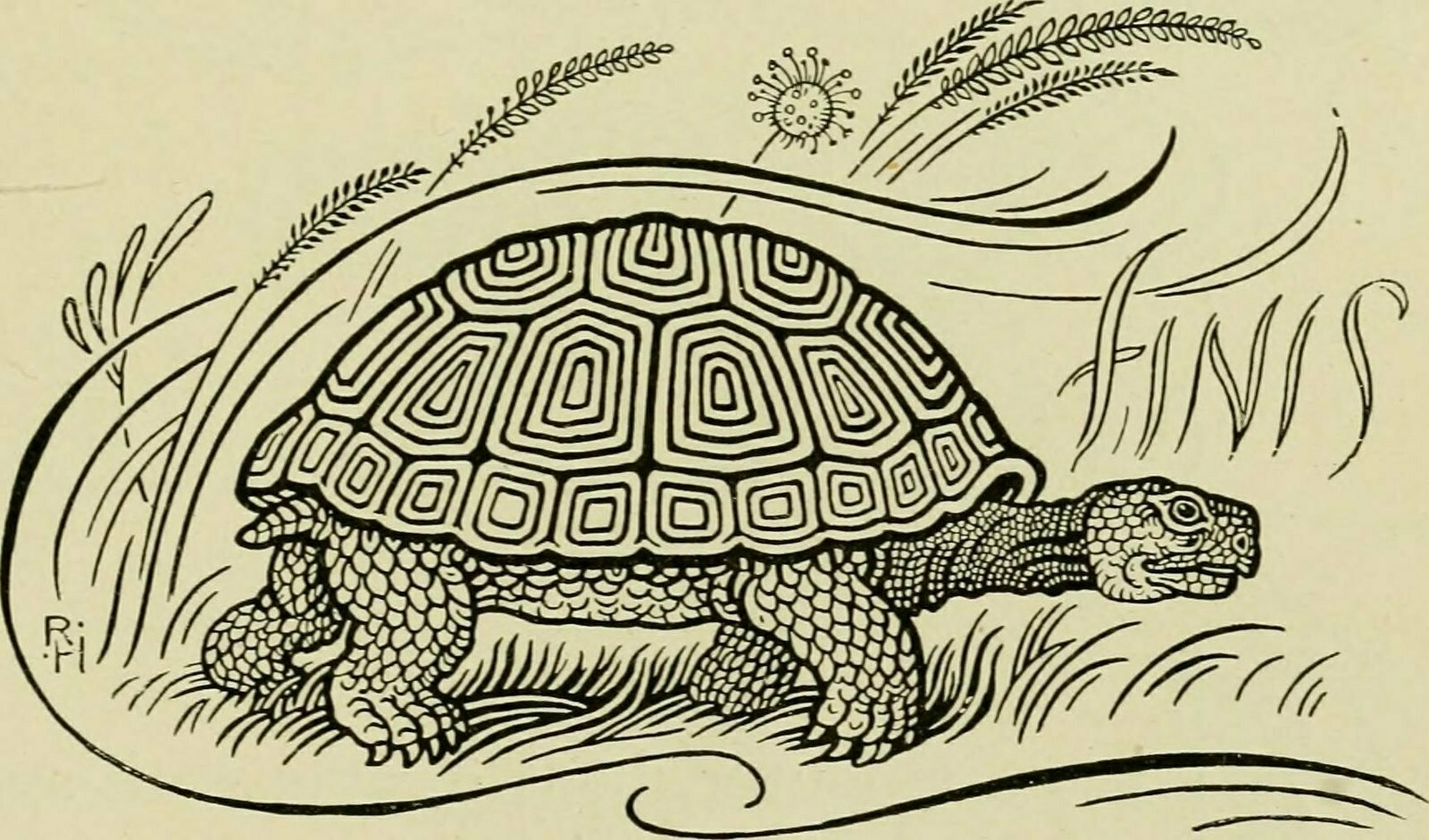
Are you Hare or Tortoise?
The idea of writing slowly appeals to me because it comes from Aesop’s fable of the hare and the tortoise. Perhaps you remember it.
The hare challenges the tortoise to a race, which he’s obviously the favourite to win. Everyone knows a hare moves much faster than a tortoise. As expected, the hare shoots ahead, then slows for a well-deserved rest, since there’s no way the tortoise will ever catch up. Meanwhile, the tortoise just plods along and eventually passes the hare, who has fallen into a deep sleep by the side of the road. The hare wakes up, just in time to watch the tortoise cross the finish line first.
Now perhaps the moral of the story is something like: slow and steady wins the race. Well, sure, that’s a good moral. And it’s true too: if you just keep on going you’ll achieve far more than if you give up. Obviously.
Another popular interpretation is that ‘pride comes before a fall’. Everyone knew the hare was fast, so why did he have to boast about it? And by trying to beat a tortoise, of all creatures?
I think of myself as someone who hasn’t been quick to publish. I think that because its completely, starkly true. There are others much quicker than me (for example, everyone who ever published). But if publishing quickly is your key metric, there’s now a big problem.
Too fast to keep up
On Amazon there are hundreds or even thousands of genre fiction writers who are writing a novel a month or even faster, just to satisfy the voracious appetite of the algorithm. If they slow down their pace even a little, the site loses sight of them and they risk sinking back down towards obscurity - so all they can do is keep going, writing faster and faster, and with the assistance of AI tools if necessary. In relation to these prolific authors, everyone is writing slowly.
But now that AI has worked out how to tell a coherent story too, the humans, however fast, have no chance. Bots are writing for themselves, and they can write far, far quicker than any human could possibly keep up. If all that matters is quantity, we’re sorted - AI will make mountains of it.
In 2023 for example, the news reported literary journals closing their books to new entries because they were simply overwhelmed by automated entries that the editors couldn’t tell apart from the stories written by humans. And with so many entries they didn’t have time to check anyway1.
So from now on, by most metrics, all humans are writing slowly. Let’s face it, in relation to the machines, we’re second best, no longer gold medal material. It’s enough to induce a bout of Promethean shame.
Each of these moments of innovation involves an emotion similar to what German philosopher Günther Anders called ‘Promethean shame’. This is the feeling that technology is embarrassing us by pointing out our human limitations. We’re just not as good at doing things as the tech that we invented to ‘help’ us do it. In Anders' original formulation the shame arose in the observation of high quality manufactured goods. What was it shame of? That we were born, not manufactured (Die Antiquiertheit des Menschen, 1956). In the face of the latest AI panic, we’re asking, yet again: if the tools don’t really need us, what’s the point of humans at all?
Keep your eye on the finish line
But for me, the key message of the fable of the hare and the tortoise isn’t about how you’ll win the race if you just keep going. I don’t really have any problem with keeping going. I’m tenacious and have a lot of inertia. That means I find it hard to start, but equally hard to stop. No, for me the moral of the fable of the hare and the tortoise is quite different.
The story reminds me that I’ve only won when I cross the finish line. Anything else isn’t a victory. That means it’s OK to write slowly, but what I need to keep sight of is finishing something, anything, and shipping it. It’s not enough to actually write, however fast or slow. What matters is publishing, in whatever form, for whatever audience.
But maybe the process is what matters
One of my role models is the Argentinian author César Aira. He’s written a very large number of novels and novellas (at least 80 - around two to five per year since 1993), published by a variety of presses. That’s a lot of races and a lot of finish lines crossed.
Even if you met another Aira fan it would be unlikely you’d both have read the same Aira books, because there are just so many of them. And of course, Aira’s has written a novel called The Hare - but who, even among Aira enthusiasts, has read it? In other words, Aira’s oeuvre is more the record of a particular creative process than it is a body of work to be read in its entirety.
Indeed, the critic Marcello Balvé says Aira’s many novels are “stepping stones, a trail of crumbs leading to a place as close to the molten heart of creation as it is possible to come without burning up.” That’s a bit overheated, but why not2?
Which way are you running?
The story of the hare and the tortoise reminds me too that while I can’t really control my top speed, I can at least control the length and direction of the race I’m running. I often think in terms of writing a whole book, or even a series of books - only to feel overwhelmed by the enormity of the task I’ve set myself.
But it doesn’t have to be like this. Aira only writes short books, but he publishes roughly two a year. A book is made out of chapters, and chapters are built from sections, and sections are made from paragraphs and sentences. In fact, the road to a complete book passes necessarily through a series of completed short pieces, each no harder to write than this one I’m writing right now. I could rein in my ambitions, and publish as I go, one idea at a time.
That way, instead of never completing anything, I’ll always be completing something. And publishing it for you to read, exactly as I’m doing now.
But whether I’m a tortoise or a hare, or even a person who resists anthropomorphizing animals just for the sake of a cheap fable, or even a person who’s uncomfortable with running and competition metaphors, all the same I’m running my own race: watch me win.
More on writing slowly
You can get a lot done by writing slowly
Thoughts are nest-eggs. Thoreau on writing
More on Artificial intelligence (AI) and large language models (LLMs)
Despite AI, the Internet is still personal
Can AI give me ham off a knee?
More than ever, embracing your humanity is the way forward
Jules Verne could have told us AI is not a real person
Gaslit by machinery that calls itself a person
yeah, no, that didn’t work. Back to the drawing board. Or whatever board is needed for my wicked plans of social media subversion via POSSE to see the success they so richly deserve.

I’m a big fan of the POSSE approach - Post Once, Subvert Social networks Everywhere. I think that’s what it stands for. Anyway, if I’ve done the plumbing correctly, this will appear on BlueSky, micro.blog and Mastodon, as well as writingslowly.com . But then I’m completely unlicenced so we’ll see
Well I’ve signed up to BlueSky. Dislike sociopathic ‘social’ networks at the whim of seed(y) capital. But I really liked what Paul Frazee did with Beaker Browser (RIP). He’s a leading BS creator (that’s unfortunate!), so I’m willing to test it. Just my feed, mind - I’m still writing slowly.
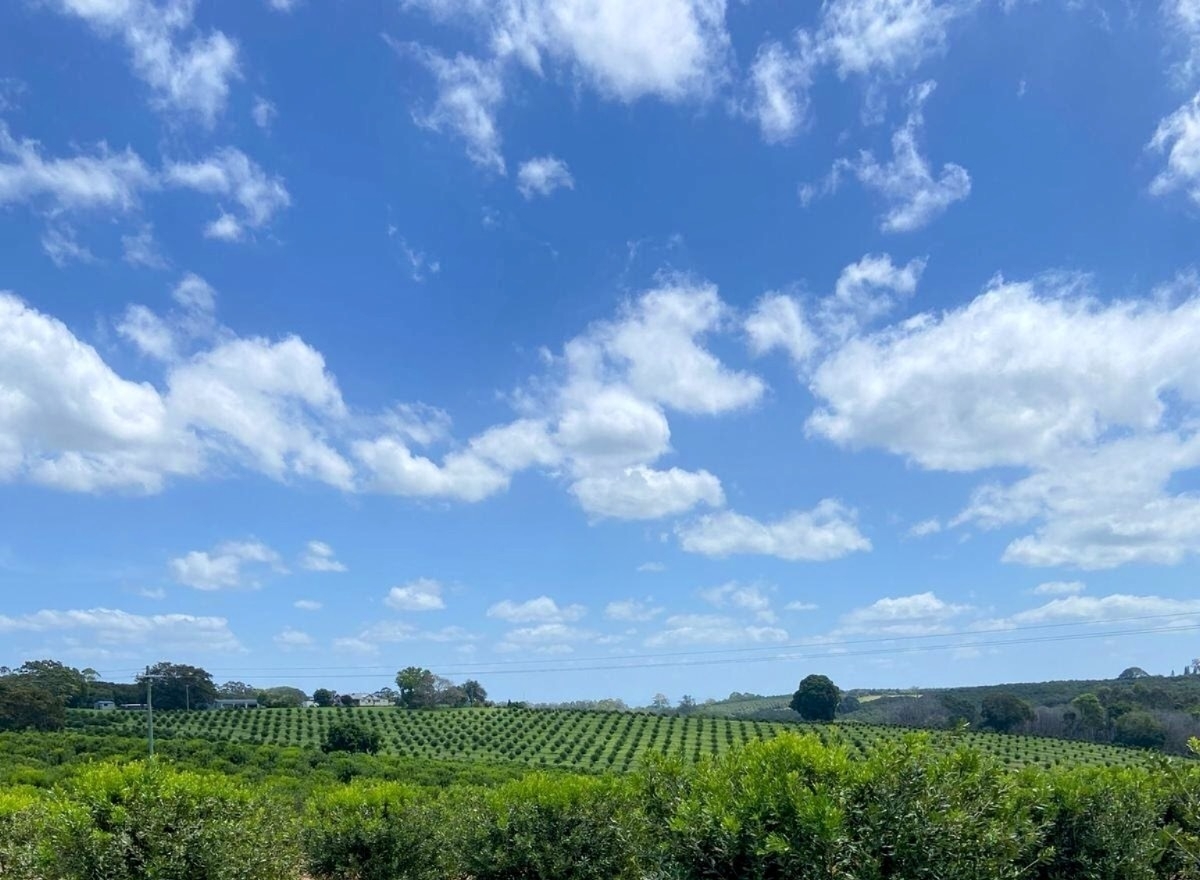
A history of thinking on paper
It’s hard to describe how exciting it was to receive in the mail this morning: The Notebook by Roland Allen! 📚
The subtitle is excellent: A History of Thinking on Paper. This reminded me of Walter Ong’s claim about the decisive impact of writing, as a technology, upon the very shape of thought:
“Without writing, the literate mind would not and could not think as it does, not only when engaged in writing but normally even when it is composing its thoughts in oral form. More than any other single invention, writing has transformed human consciousness.” ― Orality and Literacy: The Technologizing of the Word
And of Niklas Luhmann’s more personal 1 version:
“It is impossible to think without writing; at least it is impossible in any sophisticated or networked (anschlußfähig) fashion." ― Communicating with Slip Boxes. An Empirical Account, 1992.
Index cards, that other excellent tool for thinking on paper, scarcely get a mention, overshadowed as they are here by notebooks. But at least the single mention is significant, since it concerns the research methods of Linnaeus:
”As he accumulated ever more data, he he moved on to index cards, which - unlike bound notebooks - allowed for an infinite number of new entries to be added to his catalogues.” (p. 244)
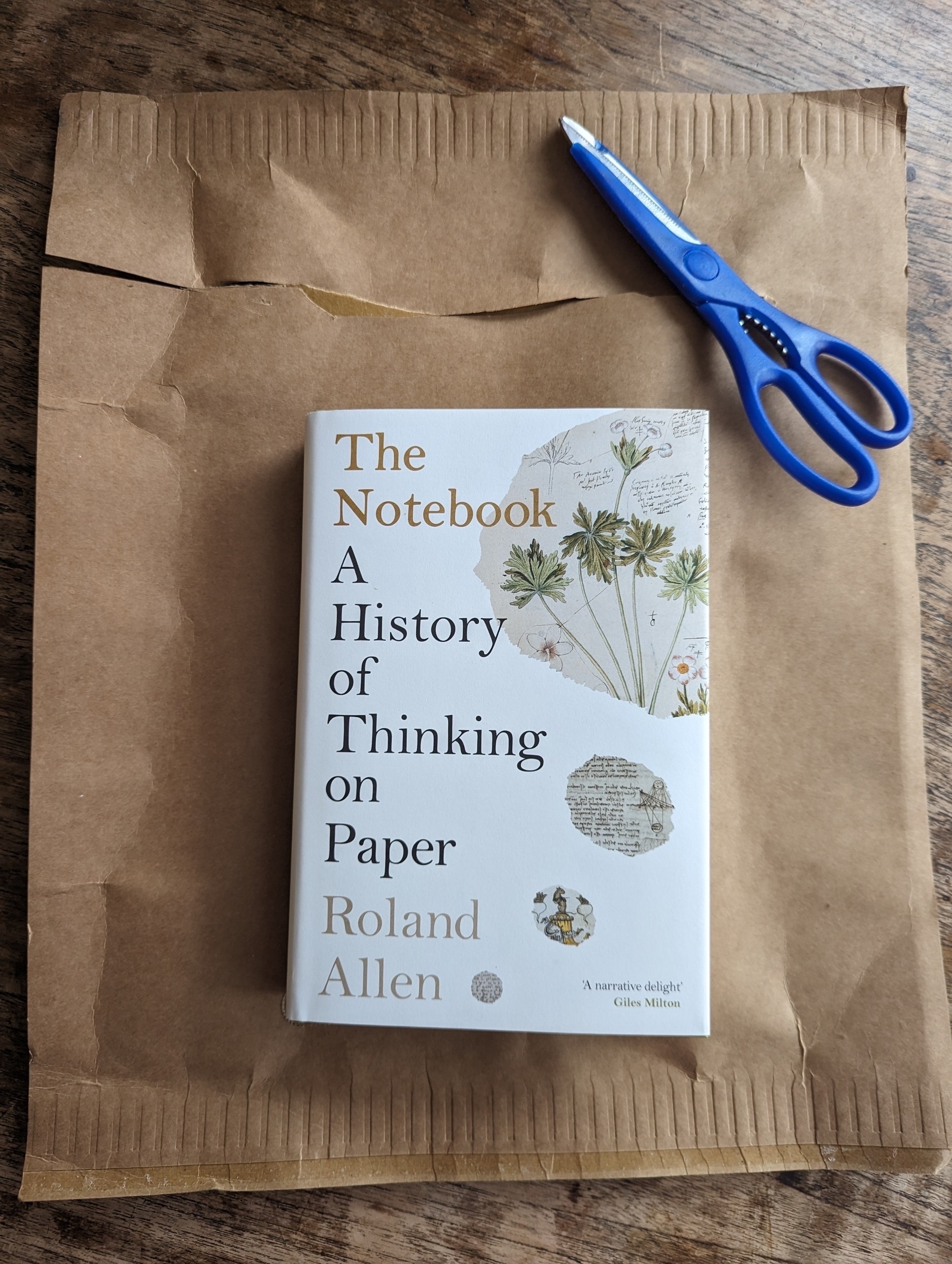
Finished reading: Movement by Thalia Verkade 📚This is for everyone who’d like to get around their home town better.
In eight different ways, to have a friend is to be one
A few years ago, Barking Up The Wrong Tree reflected on research 1 that identified the eight different kinds of friends you need. But it struck me that this is really a primer on the eight different kinds of friend you need to be to others.
Remember the old saying, “to have a friend is to be one”? Well there’s more than one way you can be a friend to someone and you’re probably not making the most of all your opportunities here. I’m not saying you should try to cover all the bases. It’s unlikely any one person could really fulfill all the eight roles to best effect. Instead, I’m using this as a checklist to reflect on:
I’m also using this as a way of being more reflective about what my various friends actually need from me. For example, I tend to do a lot of ‘mind-opening’, but actually, this may not always be very useful. If I’m honest, it might well just be annoying.
“What do you need right now?” might be a good phrase to practice!
Eight ways to be a friend
How to make the most of surprising yourself
Your collection of linked notes, your Zettelkasten, isn’t a ‘second brain’, as though it were separate from your first, actual brain. Rather it is part of your extended mind, which your brain creates constantly by co-opting its wider environment into its own processing activity. Brain and environment together create mind. In the case of the Zettelkasten it’s a very deliberate extension of the brain, with a few simple but powerful generative rules.
One of the interesting features of this deliberately extended cognitive tool is its ability to present you with surprises. Reading through old notes, for example, you may be surprised that you ever wrote this. And re-reading your work in the light of new information, you may have new flashes of inspiration or see new connections that weren’t previously visible. Or perhaps the juxtaposition of two seemingly unrelated notes will prompt you to create a third, which contains an entirely new idea.
In this sense, your notes become a kind of conversation partner, reminding you of what you once thought, and even challenging you to go further. It’s a living thinking environment, an ever-evolving ‘connectome’, which sometimes appears to have a life of its own.
Why not surprise yourself?
Philosopher Andy Clark is quite well known for claiming that the human mind extends beyond the brain, and that “human brains spawn and maintain extended human minds”.
In a podcast interview with Sean Carroll, he recommends artificially curating environments in which we can surprise ourselves. This temporary increase in uncertainty, he claims, reduces prediction error in the long term.
“it looks as if very often, the correct move for a prediction-driven system is to temporarily increase its own uncertainty so as to do a better job over the long time scale of minimizing prediction errors, and that looks like the value of surprise, actually, and that we will… I think we artificially curate environments in which we can surprise ourselves. I think, actually, this is maybe what art and science is to some extent, at least, we’re curating environments in which we can harvest the kind of surprises that improve our generative models, our understandings of the world in ways that enable us to be less surprised about certain things in future.”
Clark refers to the work of Karin Kukkonen, a literary scholar who has applied the idea of predictive processing to literature. This reminded me of Steven Johnson’s suggestion in his book, Farsighted that a good novel is a decision-making simulation. He extolls the sophisticated decision-making conundrums of the characters in George Eliot’s Middlemarch, over the simpler black-and-white decisions of Charles Dickens' characters.
So perhaps the surprise function of the Zettelkasten is more useful than at first appears. It isn’t merely an aid to memory, or a handy conversation partner, or a writing prompt. On Clark’s account, it may also enable precisely the kind of surprises we need and can learn from in order to understand the world better.
Of course, we constantly encounter surprises in everyday life, and sometimes learn from them too. But viewed through the ‘predictive, extended mind’ lens, the Zettelkasten presents a precise, controlled and deliberate laboratory for cultivating such a learning process.
I wonder how your notes have surprised you. Please let me know.
Some resources
Andy Clark on the Extended and Predictive Mind - [Sean Carroll’s Mindscape: Science, Society, Philosophy, Culture, Arts, and Ideas] (https://www.preposterousuniverse.com/podcast/2023/04/27/235-andy-clark-on-the-extended-and-predictive-mind/)
Clark, Andy. 2022. Extending the Predictive Mind, Australasian Journal of Philosophy, DOI: 10.1080/00048402.2022.2122523
Johnson, Steven. 2018. Farsighted : How We Make the Decisions That Matter the Most. New York: Riverhead Books an imprint of Penguin Random House LLC.
Kukkonen, Karin. 2020. Probability Designs: Literature and Predictive Processing. Oxford: Oxford University Press. ISBN: 9780190050962
See also
A network of notes is a rhizome not a tree
Finished reading: The Circle of the Way by Barbara O’Brien 📚 Plenty of wide-ranging information in this survey of Zen Buddhism, with an international perspective. I discovered plenty I didn’t know, but now want to read more about the impact of modernity on Zen, which could only really be touched on in a book with such a wide historical sweep as this one. This will be on my list: McMahan, David L., The Making of Buddhist Modernism (New York, 2009; online edn, Oxford Academic, 1 Jan. 2009), doi.org/10.1093/a…
Finished reading: The Real Work by Adam Gopnik 📚A great section on the art of magic and the significance of S.W. Erdnase’s book, The Expert at the Card Table. Apparently, when magicians want to learn a new trick from the top expert, they ask, “Who has the real work?” It’s a useful question, and not just for magic tricks. Gopnik, long a masterly writer, tries his hand at a series of *new * skills, including driving, making bread, dancing, and alarmingly, urinating in public. That last one does make sense, but you have to read the book to find out why. I also found out that when a magician catches a bullet, it’s real. Sometimes, the trick is that you have to catch the bullet.
I’ve written more about this book: What is the real work of serendipity?
It strikes me that one significant feature of mastery is to be able to spot a lucky opportunity and then make something of it. The expert can’t help but see it. Everyone else would miss this chance moment, or else be unable to execute the essential implementation.